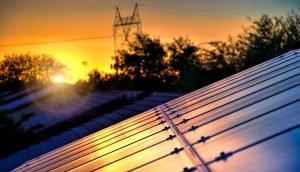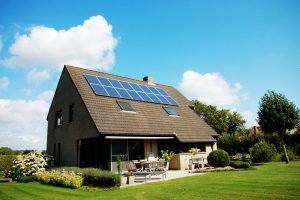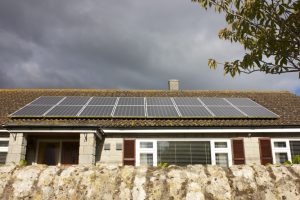How Much Do 400-watt Solar Panels Cost? An Accurate Overview
You’ve been considering installing solar panels for a while now, but you’re not quite sure where to start. Well, look no further! In this article, we’ll be shedding some light on the cost of 400-watt solar panels. Whether you’re curious about the price or trying to determine if they’re the right fit for your needs, we’ve got you covered. So, sit back, relax, and let’s uncover the exciting world of 400-watt solar panels and the price tags that come along with them.
Factors Affecting the Cost of 400-watt Solar Panels
When it comes to determining the cost of 400-watt solar panels, there are several factors that need to be taken into consideration. These factors can significantly impact the final price you will pay for your solar panels. Understanding these factors will help you make an informed decision when considering the purchase of 400-watt solar panels.
Quality of Materials
The quality of the materials used in the manufacturing of solar panels plays a crucial role in determining their cost. Higher quality materials are more efficient and durable, which can lead to a higher price tag. However, investing in high-quality materials can ensure that your solar panels perform optimally and have a longer lifespan, making it a worthwhile investment in the long run.
How Much Do 400-watt Solar Panels Cost?
Manufacturing Technology
Advancements in manufacturing technology have significantly impacted the cost of solar panels. More efficient and advanced technology can help streamline the manufacturing process, reducing costs and making solar panels more affordable. It is important to research and choose solar panels that utilize the latest manufacturing technology to ensure you are getting the best value for your money.
Brand Reputation
The reputation of the brand manufacturing the solar panels can also affect their cost. Well-known and established brands often come with a higher price tag due to their reliability and quality. However, lesser-known or newer brands may offer competitive pricing to gain market share. It is essential to research the reputation and customer reviews of different brands to find a balance between cost and quality.
Certifications and Warranties
Certifications and warranties provided by the manufacturer can also impact the cost of solar panels. Solar panels that have undergone rigorous testing and obtained certifications from reputable organizations may cost more. However, these certifications ensure that the panels meet certain standards and provide reliable performance. Additionally, longer and more comprehensive warranties can increase the cost of solar panels but also provide peace of mind knowing that you are protected against potential issues.
Average Cost Range
The cost of 400-watt solar panels can vary depending on several factors. On average, you can expect the cost to fall within a specific range.
Lower Range
In the lower range, you can find 400-watt solar panels with prices typically starting around $200 per panel. These are often budget-friendly options that may not have the same level of efficiency or durability as higher-priced panels. However, they can still be a viable option for those on a tight budget or for smaller-scale solar installations.
Higher Range
In the higher range, you can find 400-watt solar panels with prices ranging from $400 to $600 per panel. These panels are generally made with higher-quality materials, utilize advanced manufacturing technology, and come with longer warranties. While they may have a higher upfront cost, they often provide better performance and durability, making them a worthwhile investment for those who prioritize long-term benefits.

Comparison with Other Wattage Solar Panels
To put the cost of 400-watt solar panels into perspective, let’s compare them with solar panels of different wattages.
Cost of 200-watt Solar Panels
200-watt solar panels are commonly available and can be a more affordable option for individuals looking to start small or have limited installation space. The cost of 200-watt solar panels typically ranges from $100 to $250 per panel, depending on the brand and quality. While they may not produce as much electricity as 400-watt panels, they can still provide significant energy savings.
Cost of 300-watt Solar Panels
300-watt solar panels are a popular choice for residential and commercial installations. These panels offer a balance between cost and efficiency, making them a cost-effective option for many. The cost of 300-watt solar panels can range from $200 to $400 per panel, depending on the manufacturer and specifications.
Cost of 500-watt Solar Panels
500-watt solar panels are at the higher end of the wattage spectrum, offering excellent efficiency and output. However, they come with a higher price tag. The cost of 500-watt solar panels typically ranges from $600 to $900 per panel. These panels are often used for larger installations or for those aiming to maximize their energy production.
Additional Costs to Consider
Apart from the cost of the solar panels themselves, there are additional costs that should be considered when planning a solar installation.
Installation Charges
It is important to take into account the costs associated with the installation of solar panels. Hiring a professional solar installer ensures that the installation is done correctly and safely. The installation charges can vary depending on factors such as the complexity of the installation, the size of the system, and the location. It is recommended to obtain quotes from multiple installers to compare prices and services.
Mounting Equipment
Proper mounting equipment is essential for the safe and secure installation of solar panels. This includes mounting brackets, rails, and connectors. The cost of mounting equipment will depend on the type of installation (roof-mounted or ground-mounted) and the specific requirements of your project. It is advisable to consult with a solar installer to determine the most suitable and cost-effective mounting solution.
Solar Inverter
A solar inverter is a crucial component of a solar panel system as it converts the direct current (DC) produced by the panels into usable alternating current (AC) electricity. The cost of a solar inverter will depend on factors such as the size of the system and the brand. It is essential to invest in a high-quality inverter to ensure the efficiency and longevity of your solar panel system.
Battery Storage System
For individuals looking to store excess solar energy for later use or to achieve greater energy independence, a battery storage system may be needed. The cost of a battery storage system will depend on factors such as the capacity and brand. It is important to evaluate your energy needs and consult with a professional to determine if a battery storage system is necessary for your specific circumstances.

Government Incentives and Tax Credits
To encourage the adoption of solar energy, various government incentives and tax credits are available that can help offset the cost of solar panel installations.
Federal Solar Investment Tax Credit (ITC)
The Federal Solar Investment Tax Credit (ITC) is a tax credit that allows individuals and businesses to deduct a percentage of the cost of their solar panel system from their federal taxes. As of 2021, the federal ITC provides a 26% tax credit for residential and commercial solar installations. This percentage will decrease to 22% in 2023. Taking advantage of the federal ITC can significantly reduce the upfront cost of installing solar panels.
State and Local Incentives
In addition to the federal ITC, many states and local governments offer their own incentives to promote solar energy. These incentives can include grants, rebates, property tax exemptions, and low-interest loans. It is recommended to research the incentives available in your area and consult with a local solar installer who can provide guidance on the available options.
Where to Buy 400-watt Solar Panels
There are various options available for purchasing 400-watt solar panels. Consider the following options to find the best place to buy solar panels.
Online Retailers
Online retailers offer a wide selection of solar panels from different manufacturers. Websites such as Amazon and Solar-Estimate provide a platform for comparing prices and reading customer reviews. However, it is important to ensure that you are purchasing from a reputable seller to guarantee the authenticity and quality of the solar panels.
Local Solar Installers
Local solar installers often have partnerships with manufacturers and suppliers, allowing them to offer competitive pricing on solar panels. Consulting with a local installer not only provides the opportunity to purchase high-quality solar panels, but it also provides access to professional installation services and ongoing maintenance and support.

Financial Options for Purchasing
If the upfront cost of purchasing solar panels is a concern, several financial options are available to make the investment more affordable.
Leasing
Solar panel leasing allows you to install and use solar panels without the upfront cost. Instead, you pay a monthly lease payment to the leasing company. While leasing may result in lower initial costs, it is important to consider the long-term financial implications. With leasing, you may not be eligible for government incentives, and the leasing company may own the system and receive the benefits of any electricity savings.
Loan Programs
Many financial institutions offer solar panel loan programs that allow you to finance the cost of the solar panels over time. These loans often have favorable interest rates and terms, making them an attractive option for individuals who want to own their solar panel system. It is advisable to compare loan offers from different lenders to find the most favorable terms and conditions.
Maintenance and Longevity
To ensure the optimal performance and longevity of your 400-watt solar panels, regular maintenance is essential.
Cleaning and Maintenance Costs
Solar panels require periodic cleaning to remove dirt, dust, and debris that can obstruct sunlight absorption. The cost of cleaning and maintaining solar panels will depend on factors such as the size of the system, the accessibility of the panels, and the frequency of cleaning. If you are unable to clean the panels yourself, hiring a professional cleaning service may be necessary, adding to the overall maintenance costs.
Expected Lifespan of 400-watt Solar Panels
The expected lifespan of 400-watt solar panels can vary depending on the quality of the panels and the manufacturer’s warranty. However, most high-quality solar panels have an expected lifespan of 25 to 30 years. It is important to consider the long-term benefits and potential energy savings when evaluating the cost of 400-watt solar panels.
Cost vs. Savings
When considering the cost of 400-watt solar panels, it is essential to assess the potential savings over time.
Return on Investment (ROI)
The return on investment (ROI) for solar panels is calculated by comparing the upfront cost of the panels with the savings generated over the lifespan of the system. Factors such as electricity rates, government incentives, and the size of the system can impact the ROI. Despite the initial cost, solar panel installations often provide a positive ROI, allowing homeowners and businesses to recoup their investment and enjoy long-term savings on their electricity bills.
Electricity Bill Savings
One of the primary benefits of installing 400-watt solar panels is the potential for significant savings on electricity bills. By generating your own electricity, you can reduce or even eliminate your reliance on the grid, resulting in lower monthly energy costs. The amount of savings will depend on factors such as the size of the system, your energy consumption, and the rate at which your utility company credits you for excess energy produced.
The question: How Much Do 400-watt Solar Panels Cost? Now completely reviewed.
Conclusion
When considering the cost of 400-watt solar panels, it is important to take into account factors such as the quality of materials, manufacturing technology, brand reputation, and certifications and warranties. Understanding the average cost range and comparing it with other wattage solar panels can help you determine the best option for your needs. Additionally, considering additional costs such as installation charges, mounting equipment, solar inverters, and battery storage systems is crucial for accurate budgeting. Government incentives and tax credits can make solar panel installations more affordable, and exploring different purchasing options and financial programs can help you find the most suitable solution for your situation. Regular maintenance and understanding the lifespan of 400-watt solar panels are important for maximizing their performance. Finally, evaluating the cost versus savings, including return on investment and electricity bill savings, can provide a comprehensive picture of the financial benefits of installing 400-watt solar panels. By considering all these factors, you can make an informed decision and harness the power of solar energy to reduce your environmental impact and save on energy costs for years to come.

